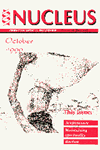Is it ever ethical to withdraw nutrition from patients? Are there circumstances in which treatment can be legitimately withdrawn? Is feeding a form of medical treatment?
At present the law is open to interpretation on these issues. However, a court can declare that it is lawful to withdraw medical assistance considered to be of no net benefit to the patient. This ruling was made in the widely publicised case of Tony Bland.
The withdrawal of nutrition
Tony Bland, a 17 year-old football fan, was left in a persistent vegetative state (PVS) following the Hillsborough stadium disaster in 1989. He was able to breathe, metabolise food and excrete waste without advanced medical assistance. The only help he needed was artificial feeding through a tube into his stomach.[1] In 1993 Bland's carers obtained permission for feeding to be withdrawn from him. This landmark ruling by the Law Lords increased pressure for clearer guidance to be given to doctors.
On 23 June this year the BMA ethics committee condoned the withdrawal of artificial nutrition or hydration from incompetent patients. The guidelines broaden the criteria to include individuals who have suffered a 'serious stroke or have severe dementia' as well as those in persistent vegetative state (PVS).[2} A new alliance of doctors, the Medical Alliance Opposed to the Guidance on the Removal of Food and Fluid, has challenged the advice, maintaining that death by dehydration is unacceptable and inhumane.[3]
Currently the Crown Prosecution Service are considering bringing charges against staff from Kingsway Hospital in Derby for allegedly hastening the death of stroke patients and others with senile dementia. Junior nursing staff reported 15 senior colleagues to the police after more than 30 elderly patients were put on 'nil-by-mouth' regimes on the pretext that they were at risk of choking.[4]
New BMA guidelines
The latest recommendations from the BMA imply that, following a formal clinical review, food and fluids which are delivered artificially may be withheld. Although the BMA denies it, this surely has the intention of starving and dehydrating a patient to death and embarks upon a slippery slope to euthanasia. The Australian editor of the journal Bioethics, Professor Peter Singer, (who believes human beings should be treated in accordance with their 'ethically relevant characteristics'), has argued that food deprivation is not 'compassionate', and that a lethal injection should be given instead. Indeed, in 1997 the International Forum for Transplant Ethics[5] advocated that PVS sufferers ought to be killed in this way, to enable their organs to be used for transplantation. It is poignant that in the Nazi Holocaust starvation of patients led to lethal injections being used, for 'compassionate' reasons.[6]
The BMA's ethics
The new BMA report upholds that: 'prolonging a patient's life usually, but not always, provides a health benefit to that patient. It is not always an appropriate goal of medicine to prolong life at all costs, with no regard to its quality or the burdens of treatment'.[7] This is a view that we can endorse as Christians. Whilst maintaining 'the utmost respect for human life'[8] we must recognise that human life in the physical sense has a natural end. CMF made this point in its submission to the Select Committee of the House of Lords on Medical Ethics.[9] It is not necessarily good practice to give all possible treatments, to all patients, in all situations, simply because those treatments exist.
However, this raises the question: 'Is artificial nutrition a form of medical treatment?' The Royal College of Nursing does not support the 'withdrawal of food and drink' and considers that the decision to stop artificial feeding is different from the decision to stop other forms of medical intervention.[10] Feeding, (even by naso-gastric tube), is part of the basic nursing care of all patients, except in the last hours of a terminal illness. This is because death by dehydration is painful and unpleasant. Whilst it is wrong to prolong the process of dying, basic nursing care must always continue.
What does the Bible say?
The Bible tells us that human beings are made by God, in his image (Gn 1:27). It is for this reason that each life is very precious. Our value comes ultimately from the fact that we are created by God to be in relationship with him. This is true regardless of our capacities. The worth of an individual can never be determined by his quality of life or his perceived usefulness to society. It is not dependent on physical or mental abilities.
The intentional killing of any innocent human being is forbidden throughout Scripture (Gn 9:6; Dt 5:17; Mt 5:21). Our lives belong to God (Je 10:23; Ezk 18:4), and only he has the authority to take them away. There is no moral difference between killing by lethal injection and killing by withdrawal of basic nursing care. In addition there is no provision for compassionate killing on the grounds of diminished quality of life. Jesus commanded us to love one another and 'love does no harm to its neighbour' (Rom 13:10).
How can Christians respond?
To deny a patient basic nursing care is to deny their humanity. Jesus responded to the sick with tenderness, empathy and action. As followers of Christ we must declare and demonstrate God's love for the weak and vulnerable in our society. We have a responsibility to show all our patients, including those suffering from PVS or dementia, 'compassion mingled with respect'.[11]
































